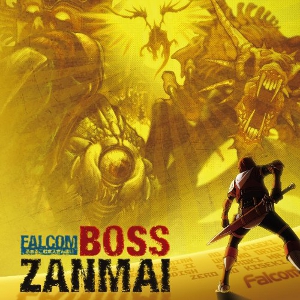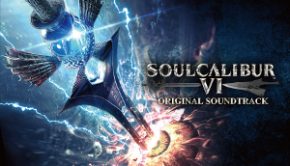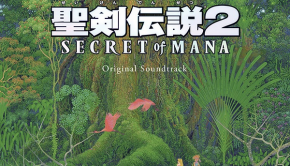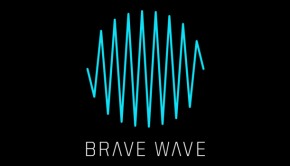Falcom Boss Zanmai
 |
Album Title: Falcom Boss Zanmai |
| Record Label: Falcom |
|
| Catalog No.: NW10102990 |
|
| Release Date: August 10, 2012 |
|
| Purchase: Buy at CDJapan |
Overview
Falcom Boss Zanmai is a collection of various boss tunes throughout Falcom’s rich history of games arranged by Yukihiro Jindo, a mainstay arranger for more recent Falcom games, as well as Noriyuki Kamikura and Toshiharu Okajima, who have also started arranging for Falcom’s soundtrack releases. Receiving an Annual Game Music Award in 2012, is the album worth the hype?
Body
Each arranger brings with them their own take on a variety of themes. Okajima’s themes definitely seem to focus on more percussion heavy arrangements, given that he is a drummer himself. “God of Wind, God of Thunder,” from Sengoku Sorcerian, takes the original fast-paced tune and turns it into a stunningly dramatic piece full of power thanks to the guitar riffs and drum work. Between all these components, I love the delicateness that is also featured in the violin and shamisen parts that help give the arrangement a bit of a traditional Japanese flair. “Gadobistal,” from Brandish, is more progressive rock-influenced with its focus on keyboards/piano, drums, bass, and violin. The adaptation is a strong one, in my opinion, and the jazz piano solo adds further depth. “The Strongest Foe,” the iconic final boss theme from Ys III, features that classic Falcom combination of rock and violin that lends itself to a very enjoyable arrangement. Okajima’s last tune is “Termination,” the iconic final battle theme from Ys II. It, too, follows the same formula as “The Strongest Foe,” but has a lot more power in the accompanying guitar riffs and percussion.
When it comes to Kamikura’s contributions to the album, he definitely provides a varied listening experience. “Out of the Way,” from The Legend of Heroes IV, is a great synth rock arrangement that features a lot of power and some great instrumental solos. He also two interpretations from Sorcerian. The first, “Evil Shaman,” is an amazing jazz rock take on the original and definitely a highlight on the album. It’s a lot of fun, features plenty of amazing guitar and piano lines/solos and the jazzy brass all play to Kamikura’s strengths. “Blue Dragon,” on the other hand, is another synth rock tune although with some brighter moments in its arrangement. It’s another great tune to rock out to. But perhaps the greatest surprise is Kamikura’s take on “Inevitable Struggle” from The Legend of Heroes Zero no Kiseki. Unlike the rest of the album that features modern instrumentation, Kamikura transforms the modern tune into an FM synth tune harkening back to the days of classic Falcom JDK. It sounds amazing and is definitely one of the highlights on the album, especially considering I didn’t know that Kamikura had any experience with FM synth!
Lastly, Yukihiro Jindo’s take on the album is definitely one that is more orchestral in nature. “Trembling Miracle,” from Ao no Kiseki, keeps the orchestral nature of the original; while the structure of the tune is the same, I find the choir to be a more prominent aspect of this arrangement, particularly with the split between male and female choirs. “Of Every Future,” from The Legend of Heroes V, also retains the orchestral nature of the original but updates it to a much cleaner sound as well as given it more power. The operatic vocals featured in this piece are definitely the highlights, although I must commend the brass sections as well as they complement the main melody quite well, particularly when the violin is in the lead. The sampling is pretty impressive here too. “Sorrowful Queen,” from The Legend of Heroes III, definitely fits the moniker. The transformation from the original FM synth to this melancholy violin lead just oozes sadness and I find it to be one of Jindo’s better contributions on the album, mostly due to the fact that the original wasn’t originally orchestral in nature, allowing Jindo to perhaps exhibit a bit more creativity in the arrangement process. Lastly, “King Dragon,” from Sorcerian the Prelude, is a powerful orchestral tune that definitely gives off a nice sense of tension and battle initially. However, as the theme progresses, there is definitely a more heroic air that manages to take control in the piece and I find this particular section to be the most appealing part of the arrangement and a very fitting way to close the album.
Summary
In the end, I think that the Falcom Boss Zanmai album is superbly produced. There is a beautiful mix of styles, ranging from orchestral to rock, as well as paying tribute to the earlier Falcom era, and each composer plays to their strengths. The implementation is also fantastic, with expertly-performed rock performances being combined with top-notch orchestral samples (not to mention the occasional 24-string koto performance). While not all remixes are particularly creative, the entire album is enjoyable and it is definitely the most entertaining Zanmai album that has been released.
Do you agree with the review and score? Let us know in the comments below!
4.5
Posted on September 10, 2014 by Don Kotowski. Last modified on September 10, 2014.














